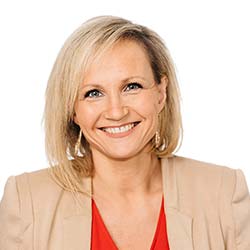This month:
Wealth management experts from our panel discuss growth versus value, alternative income sources and why UK equities are set to soar even higher.
Expert investment views:
The nuances of the growth versus value debate in equities investing are set out
A trio of investment trusts are highlighted as exciting alternative income sources
UK equities are hailed as being in the “sweet spot of the cycle” with room still to grow
Featuring this month’s experts:



1. The bias affecting football and investing
Biases can be costly. They can lead to misjudgements, missed opportunities and mistakes, which typically result in investment losses.
One of these is action bias. This describes how we instinctively believe value is created through action. We think we should act, rather than practice restraint, when both are perfectly reasonable options.
Investors are not alone in action bias. Although I usually don’t pay too much attention to football, a colleague drew my attention to the 2007 research paper, analysing 286 penalty kicks in top championships and leagues worldwide, entitled “Action bias among elite soccer goalkeepers: The case of penalty kicks”. This flagged the bias among goalkeepers who instinctively jump to the left (49.3%) or the right (44.4%). Only 6.3% of them stayed in the centre – which could be deemed the optimal choice given the typical decision to jump is before the direction of the kick is clear.
Q2 saw growth-oriented stocks up 10% to value’s 5%, with much of the differential created during June. And we expect value stocks to swing back into preference (again)
When considering parallels between everyday life and wealth management, the same goal tending analogy can be applied to investing. How many investors make knee jerk reactions to news headlines instead of staying the course?
This point is excellently exemplified by the recent outperformance of first growth stocks (throughout 2020), before value stocks outperformed in Q1. Q2 saw growth-oriented stocks up 10% to value’s 5%, with much of the differential created during June. And we expect value stocks to swing back into preference (again).
The growth versus value debate also bleeds into geographic allocations when we note that the FTSE 100’s bias towards value and cyclical stocks, given its heavy weighting towards financials and energy and small exposure towards technology (i.e. growth) companies. And although cyclical and value stocks are not one and the same, traditional value investing often favours cyclical economic sectors.
The challenge for investors comes (again) due to the COVID crisis. Many business models are changing as certain non-cyclical challenges may be insurmountable. CEOs may need to switch focus to appeal to shareholders, and stocks categorised as value versus growth, cyclical versus secular may no longer be so easily defined. As such, again the better approach may be to remain balanced given the current complexities in markets until the final whistle blows.

Rebecca Cretney
Investment Counsellor at Nedbank Private Wealth
2. Income producing “alternatives” come to market
In the last week or so, alternative income source investment trusts have rushed to market, issuing many hundreds of millions of pounds worth of new stock. This has given institutional investors the opportunity to access new stock below the prevailing market price, in return for providing fresh capital to fuel the growth of these trusts.
At Tyndall, we have recently supported three: International Public Partnerships (INPP), Urban Logistics (SHED) and Gresham House Energy Storage (GRID), locking in income yields of between 4.5% and 6.0%.
INPP provides capital to infrastructure projects, in return for annual income payments stretching into the future. Roughly 80p in the pound of these income payments is linked to inflation. Their projects are well diversified, from schools to sewers to energy transmission cables.
The need for battery storage is exacerbated by wind and solar farms, which (to state the obvious) produce power when it is windy and sunny rather than when power is needed. This is a much newer market, with the additional risk compensated by a higher dividend yield
GRID operates battery storage units which help to balance supply and demand of electricity within the national grid. The need for battery storage is exacerbated by wind and solar farms, which (to state the obvious) produce power when it is windy and sunny rather than when power is needed. This is a much newer market, with the additional risk compensated by a higher dividend yield.
SHED is the most traditional of the three, investing in “bricks and mortar” logistics warehouses to support the burgeoning home delivery market. Smaller than its competitors, the managers have produced excellent returns on capital in this dynamic and growing part of the commercial property market.
In summary, we are proud to have provided capital to these three diverse investment trusts. Our capital will be working to support the new economy and should produce solid returns.

Edward Allen
Private Clients Investment Director at Tyndall Investment Management

Top Tip

Lee Goggin
Co-Founder
3. Equity markets – destination UK
Since the start of 2021, UK equity markets have been on an upwards march, with the FTSE All Share Index close to the top of the global leaderboard with a rise of 11%. Given the UK has underperformed in recent years, this makes a nice change. Investors are feeling relief that Brexit is done, the vaccine programme is successful, sterling is rising and there is a rotation into cyclicals, of which there are plenty in the FTSE. So, what could keep the rebound on track?
Investors are feeling relief that Brexit is done, the vaccine programme is successful, sterling is rising and there is a rotation into cyclicals, of which there are plenty in the FTSE
The pandemic meant companies cut costs, so as activity recovers, margins are likely to be higher, as the first quarter results season showed. Secondly, despite an uptick in infection rates, economic forecasters are maintaining strong growth estimates, meaning bond yields are likely to normalise from very low levels – rising bond yields are good for cyclical areas, like banks and industrials. Thirdly, even though the UK’s deficit has soared to record levels, there is little sign of tax hikes yet, which makes the UK palatable to overseas investors.
This all means we are in the sweet spot of the cycle. And there is little to derail markets at present. Although many companies have recovered to pre-pandemic levels, there are lots more that are yet to return to the “new normal” – most notably healthcare companies involved in elective surgery, for example. So, although the market has gone up, there is still room to grow, plus the UK is still cheap. So, it’s destination UK this summer – not just for British stay-cationers, but also for investors.

Richard Champion
Deputy Chief Investment Officer at Canaccord Genuity Wealth Management
Important information
The investment strategy and financial planning explanations of this piece are for informational purposes only, may represent only one view, and are not intended in any way as financial or investment advice. Any comment on specific securities should not be interpreted as investment research or advice, solicitation or recommendations to buy or sell a particular security.
We always advise consultation with a professional before making any investment and financial planning decisions.
Always remember that investing involves risk and the value of investments may fall as well as rise. Past performance should not be seen as a guarantee of future returns.



